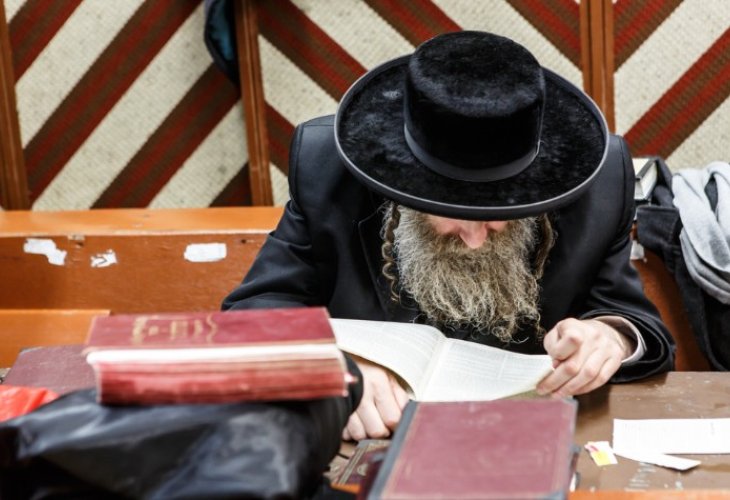Facts in Judaism
Why Do the Righteous Suffer?
A Journey Through Judaism's Approach to Suffering, Purpose, and Divine Love

It's a question as old as time itself that has been debated by prophets, philosophers, and theologians for centuries: Why do the righteous suffer? If God is just, how can those who serve Him faithfully and live lives doing good and seeking truth face such deep pain and adversity? Jewish wisdom, particularly the Zohar and Talmudic sources, offers profound insight into this mystery and develops a perspective that is both challenging and comforting.
The Zohar, the foundational work of Jewish mysticism, opens a powerful window into the Divine goal of suffering and teaches that when Hashem desires to elevate and illuminate a person’s soul, He sometimes strikes the body. After all, as long as the body and soul are in balance, the soul cannot dominate. When the body is weakened, the soul is given the opportunity to rise, shine more clearly, and lead.
Effectively, suffering is not a punishment in the punitive sense. It is refinement. Just as gold must be purified in fire, the soul too must undergo trials in this world to merit a higher spiritual reward in the World to Come. The righteous, in particular, endure “evils upon evils, pains upon pains,” not because they are forsaken, but because they are being prepared for eternal closeness with the Divine.
Rabbi Elazar in the Zohar emphasizes that all Hashem’s actions are done with justice and truth. Even the pain a righteous person endures is part of a precise and purposeful process—to purify the soul, remove the spiritual impurities absorbed in this physical world, and prepare it for eternity.
In a deeply moving passage, the Zohar interprets the verse, “My son, do not despise Hashem’s discipline”, as an expression of Divine love. Just as a loving father guides his child firmly to keep him on the right path, Hashem’s rebuke is not a sign of anger, but of care. If He did not love us, He would let us drift. Suffering, paradoxically, points to a relationship of ongoing involvement and hope.
This is why the verse says, “And I will discipline you for judgment.” The suffering of the righteous is not random or cruel. It is healing before judgment—small afflictions in this world that spare the soul in the World to Come. Hashem, in His mercy, prepares Israel for the great day of reckoning by offering small spiritual tikkunim (remedies) now. These are not punishments, but opportunities to lighten the final burden.
In a bold and stirring image, the Zohar says that sometimes a righteous person is handed over to the "prosecutor"—not because he deserves it, but because it is necessary for the generation. One person’s suffering can act as a spiritual shield for many. That individual becomes, in a sense, a shepherd of the people, taking on pain so others may be spared. Effectively, their suffering is redemptive.
This idea is echoed in the Talmud, in Tractate Berachot: “Anyone whom Hashem desires—He crushes with suffering.” Yet the verse continues with a promise: if the suffering is accepted with love, the reward is immense. Such a person will see offspring, have a long life, and his Torah will endure. Suffering, when embraced with faith, leads not to despair but to deep-rooted blessing.
Another statement from Berachot gives voice to unimaginable pain: “Whoever engages in Torah study and acts of kindness and buries his children—all his sins are forgiven.” The loss of a child is perhaps the most shattering grief a human can experience. Yet even this unfathomable pain is given a spiritual context. It becomes part of the soul’s cleansing, the heart’s elevation, and a Divine plan we cannot fully see from our place in this world.
The Midrash Tanchuma adds a provocative idea: a person should rejoice more in suffering than in prosperity. Why? Because prosperity may mask the need for atonement, while suffering refines the soul and erases sin. In a sense, it does more than sacrifices ever could—because sacrifices are offered with money, but suffering is endured with the body, the self. It is the most profound sacrifice a person could ever offer.
Rabbi Michael Lasri, who himself endured the tragic loss of his son, once gave a heartfelt lecture addressing this very question: Is there no justice in the world? His words, filled with both grief and faith, bring these ideas to life. His suffering is not abstract—it is real, raw, and deeply human. And yet he reaches for meaning within the pain, echoing the voices of our Sages who taught that suffering, when carried with love and trust, can bring about a powerful spiritual transformation.
In the end, we are left with a picture that is both difficult and beautiful. Suffering does not mean abandonment. It is not random or meaningless. Rather, it is a sign of Divine closeness—a path through which the soul becomes its truest self. While the pain of the righteous may never be fully understood in this world, our tradition reassures us that their tears are never ignored and their reward is beyond imagination.

